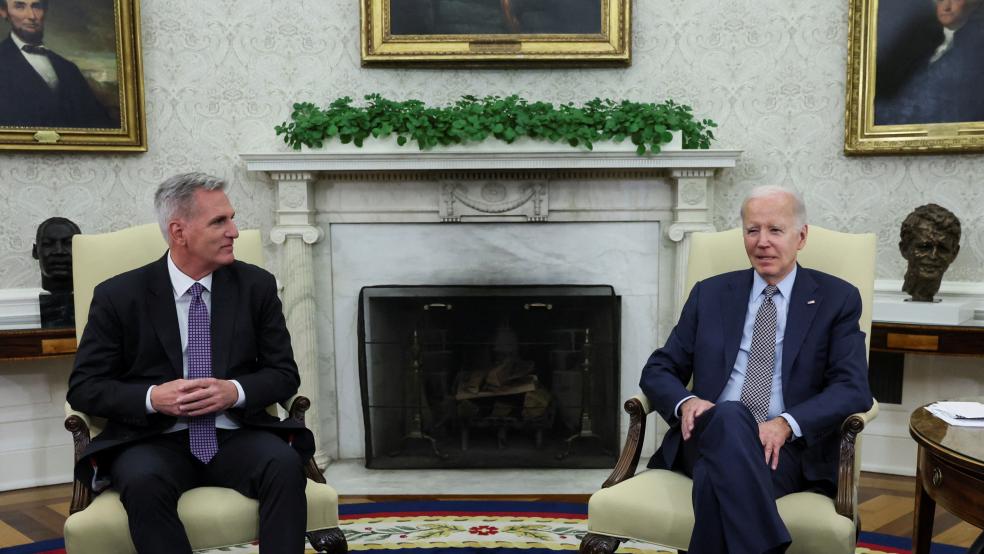The Fiscal Responsibility Act signed into law this past weekend by President Joe Biden eliminates the risk that the U.S. could default on its interest payments, at least until 2025, when a temporary suspension of the federal debt limit is lifted according to the terms of the legislation. According to credit analysts at Moody’s Analytics, one of the three major firms that grade sovereign debt, the bipartisan deal to suspend the debt limit and cap spending is consistent with the firm’s existing rating on U.S. credit, which stands at the highest level of Aaa.
“Overall, the FRA does not change our assessment of the US sovereign credit profile given the act's limited impact on the federal government's fiscal position, institutions and governance strength, and the broader economy,” Moody’s analysts wrote Monday.
While the assessment may come as a relief in that it finds no reason to alter the U.S. credit rating, it does not give the country a clean bill of health entirely. The showdown over the debt limit reflects the risk of growing political polarization in the U.S., which produces weaker policymaking on fiscal issues compared to other wealthy nations. In making their assessment, Moody’s is simply saying that little has changed with respect to these ongoing negative factors – which together give the U.S. the weakest governance score of the 12 Aaa-rated nations.
And Moody’s continues to warn of potential trouble ahead for the nation’s fiscal trajectory. “Over the medium term, widening fiscal deficits and declining debt affordability will increasingly weigh on the country's fiscal strength and be the main credit challenge to the sovereign's Aaa rating and stable outlook,” the analysts wrote.
Modest effect on deficits: The FRA offers relatively limited deficit reduction, driven largely by budgetary caps that are locked in for two years. The savings – $69.5 billion in fiscal year 2024 and $112.2 billion in fiscal year 2025 – are small relative to both GDP and to future projected deficits.
The FRA offers relatively limited deficit reduction, driven largely by budgetary caps that are locked in for two years and are not enforced for four years after that. The savings for the first two years — $69.5 billion in fiscal year 2024 and $112.2 billion in fiscal year 2025 — are small relative to both GDP and to future projected deficits.
The legislation provides little by way of revenue enhancements to further reduce deficits, Moody’s noted. One source of new funds is a partial clawback of money provided to the IRS to enhance enforcement – but that will end up costing more in lost revenue than any savings from the clawback, the analysts said, citing the Congressional Budget Office.
The lack of new revenues plays an important role in the concerns Moody’s has about the affordability of U.S. debt in the future. “Over the medium term, in line with rising US interest rates, we expect the ratio of federal interest payments to revenue to deteriorate from around 13.7% in fiscal 2023, already a high level compared to other Aaa-rated sovereigns, to around 25% in 2033, driven mainly by higher interest payments and comparatively weak government revenue growth,” the analysts said.




